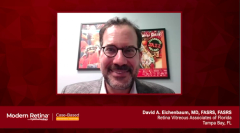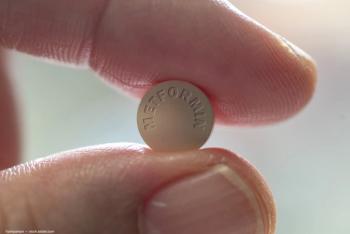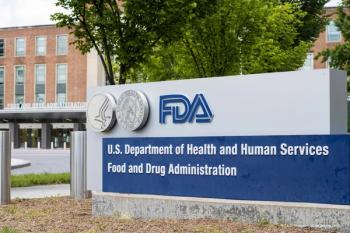
Tolerance and Aggression: Achieving Improved Fluid Response
David Eichenbaum, MD, FASRS discusses his clinical experience in managing retinal fluid, emphasizing the need to dramatically reduce intraretinal fluid, highlighting different strategies of care that offer the best results for patients.
Summary
David Eichenbaum, MD, FASRS shares insights into his approach to treating neovascular macular degeneration, emphasizing the goal of reducing intraretinal and subretinal fluid for optimal visual function and anatomical outcomes. He expresses intolerance for intraretinal fluid, citing evidence that it may have more adverse long-term effects. The physician discusses his aggressive treatment strategy, especially in the early stages of the disease, aiming to maintain dryness. He highlights the importance of a regimen that is not only effective but also tolerable and accessible for patients.
Eichenbaum advocates for early switching to alternative agents in cases of non-response or inadequate durability. He favors second-generation agents like aflibercept 8 milligrams or faricimab, especially when attempting to extend treatment intervals. This patient-centered approach ensures a tailored and proactive plan for managing neovascular macular degeneration, considering both initial response and long-term durability.
This summary was AI-generated and edited for clarity.
Newsletter
Keep your retina practice on the forefront—subscribe for expert analysis and emerging trends in retinal disease management.





























